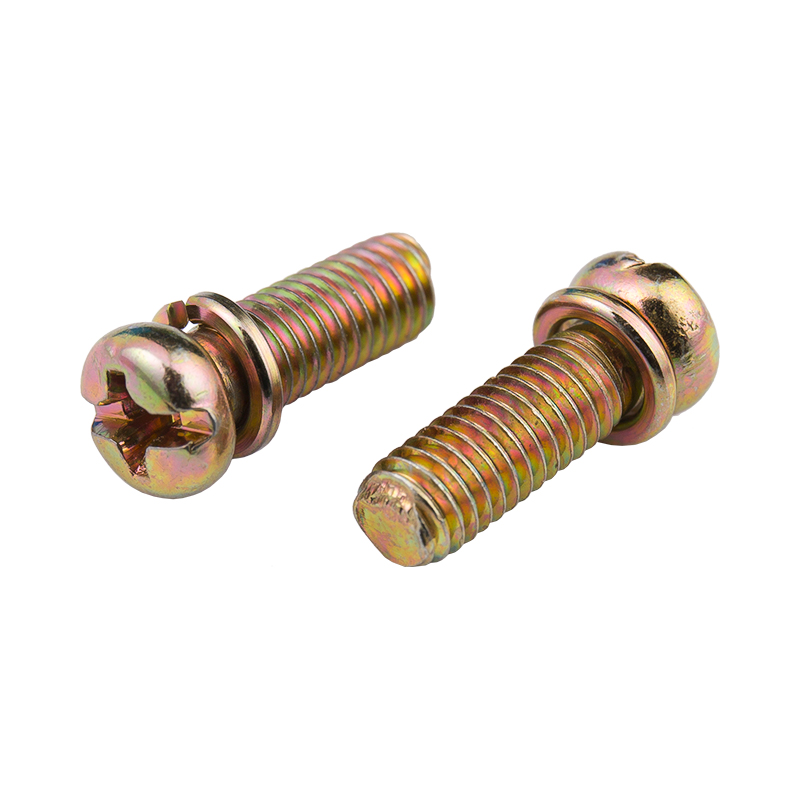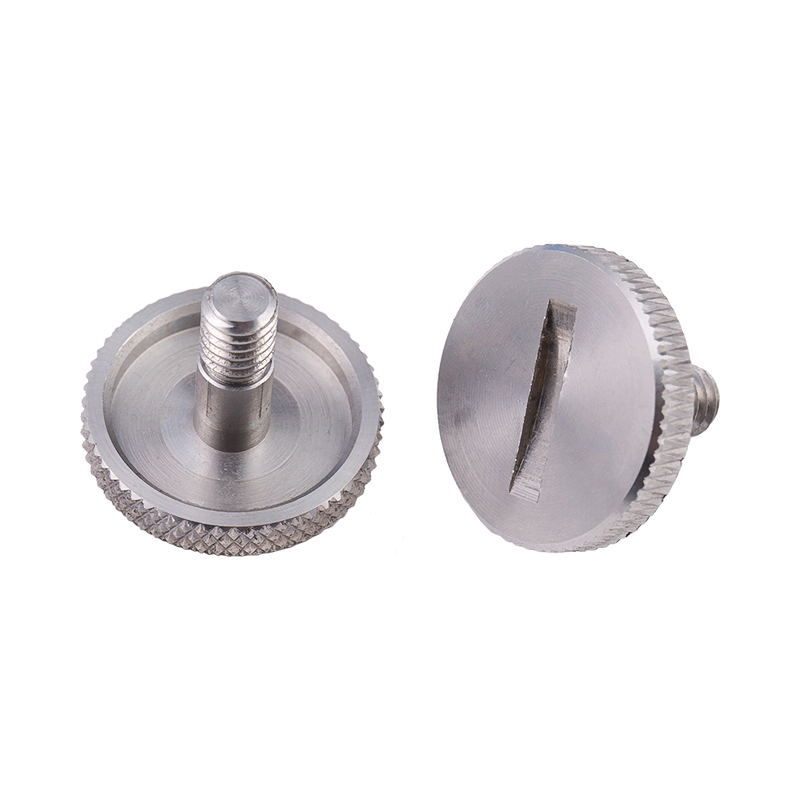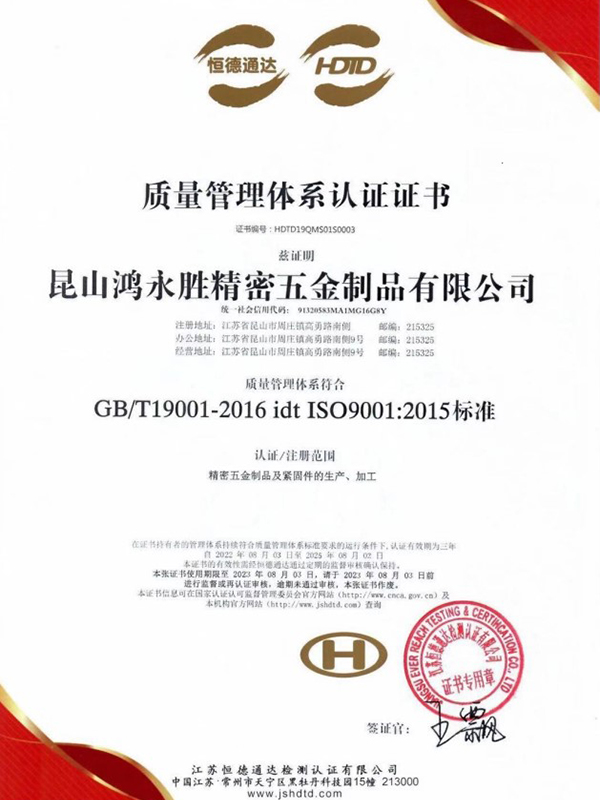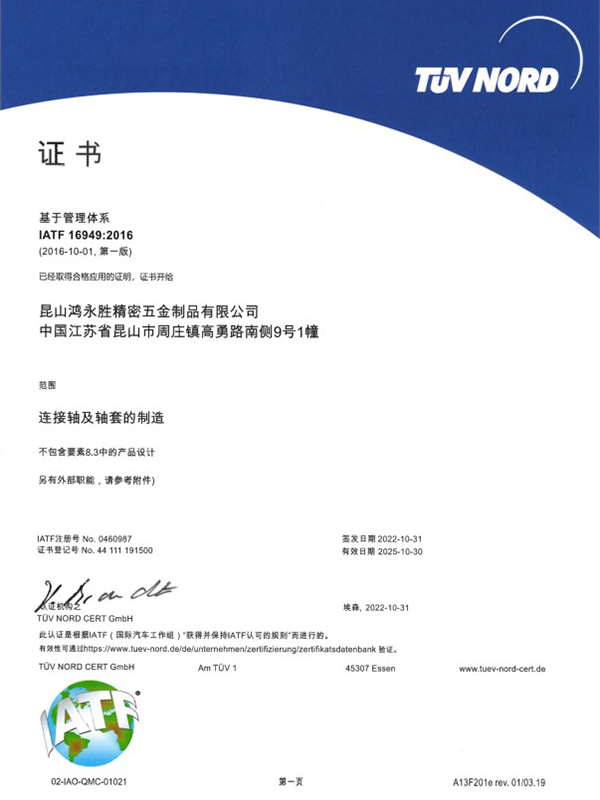Definition and Basic Concept of Hexagonal Rivet Nuts Hexagonal rivet nuts are internally threaded fasteners designed to create strong, load-bearing threads in thin or hollow materials where convention...
READ MOREThe company has obtained two quality system management certificates of ISO9001:2015 and IATF16949:2016.
At present, the company has been for Japan, Sweden, the United States, Singapore, Malaysia, Hong Kong and the Pearl River Delta and many other customers to provide services, now the main customers are: Japan Sharp (SHARP), Japan SMC, Japan Panasonic (Panasonic), the Swedish automobile VOVOL, etc., all the fixed assets investment of more than 30 million dollars, welcome friends from all walks of life to the factory to visit, study, consulting and come! We welcome friends from all walks of life to visit our factory, investigate, consult and come to us for sample processing.
We are looking forward to establishing a good business partnership with you with mutual trust and reciprocity!
-
-
Understanding Sealing Requirements in Hydraulic and Pneumatic Systems Hydraulic and pneumatic connections operate under internal pressure, media flow, and frequent pressure fluctuations. In these syst...
READ MORE -
Introduction to Screw Hardware Screw hardware is a fundamental component in construction, manufacturing, and DIY projects. It plays a critical role in joining materials securely, providing structural ...
READ MORE -
Introduction to Round Head Cross Bolts Round head cross bolts are a type of fastener widely used in construction, machinery, and industrial applications. They feature a rounded head with a cross slot ...
READ MORE
How does the cost of non-standard carbon steel screws compare to standard screws?
Generally, non-standard carbon steel screws may have a slightly higher base cost compared to standard screws due to factors such as customization and potentially higher-quality materials.
If you require non-standard lengths, diameters, or head styles, there may be additional costs associated with customization. These costs can vary depending on the complexity of the customization and the supplier's pricing structure.
Higher-grade carbon steel typically comes at a higher cost. If your application requires a specific grade of steel for its mechanical properties, the cost of non-standard carbon steel screws may be higher than standard screws made from lower-grade steel.
Like standard screws, purchasing non-standard carbon steel screws in larger quantities often leads to cost savings per unit. Suppliers may offer discounts for bulk orders, which can help mitigate the higher base cost associated with non-standard screws.
Non-standard carbon steel screws may offer additional features or coatings for specific applications, such as corrosion resistance coatings or specialized thread designs. These features can impact the overall cost compared to standard screws without such enhancements.
What are the different grades of non-standard carbon steel screws available?
Grade 2 is a low carbon steel grade often used for general purpose applications where moderate strength and good ductility are required. Grade 2 screws are easy to form and suitable for non-critical applications.
Grade 5 Also known as medium carbon steel, Grade 5 screws offer higher strength and hardness compared to Grade 2. They are commonly used in applications requiring higher tensile strength, such as automotive and machinery assembly.
Grade 8 screws are high-strength carbon steel screws with excellent tensile strength and hardness. They are heat treated to achieve their mechanical properties and are used in demanding applications where high strength and reliability are essential, such as aerospace and structural construction.
Some non-standard carbon steel screws are made from alloy steel, which contains additional alloying elements such as chromium, molybdenum, or nickel. These alloys can enhance the mechanical properties of the screws, offering improved strength, hardness, and corrosion resistance.
In addition to the standard grades mentioned above, there are specialty grades of non-standard carbon steel screws designed for specific applications. For example, some screws are heat treated to achieve specific hardness levels or are coated with corrosion-resistant materials for use in harsh environments.



 русский
русский Español
Español




